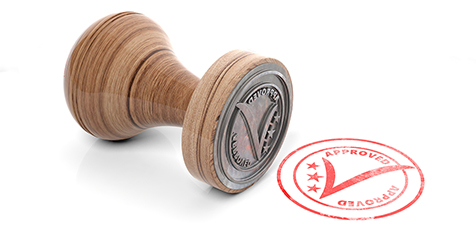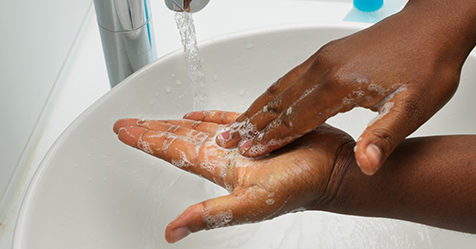Cleaning operations managers often lose sleep at night about employee turnover rates, competitors outperforming them, bad publicity, and making a profit, according to the 2015 Procter & Gamble Professional Cleaning Industry Insights Survey. But for four consecutive years, one thing has been the No. 1 concern for managers: customer satisfaction. Why? Because customers control which organizations thrive or fail in the market. They literally hold the “kill switch.”
“Consumers have traditionally had little information, limited access to one another, and few outlets for feedback and communication,” said Pete Blackshaw in his book, Satisfied Customers Tell Three Friends, Angry Customers Tell 3,000. “But the internet has changed all that. It’s given consumers not only a collective voice, but also a platform and a forum for those voices.”
According to Randy Brandt, founder of Voice Crafter, a customer service consulting firm, it wasn’t until the 1990s that companies began to really understand the importance of customer perception and satisfaction. Brandt explained this realization led companies to start thinking about using client surveys.
The voice of customers must not only be sought out, but also integrated into how a building service contractor (BSC) runs his or her business. Client surveys, paired with technology, are the ideal customer satisfaction tool.
A client survey is composed of predetermined questions in relation to topics such as customer service. These questions are sent out to customers, seeking their input on what they find satisfying and what needs changing. With such surveys, businesses can more specifically define a customer’s attitude.
So how can client surveys be used more effectively by BSCs than for the sole purpose of gathering “good-to-know” feedback? Here are a few pointers to help your business get the most out of them.
Ask Good Questions
The most critical component of surveys is the questions themselves. BSCs have to determine the correct questions to ask in order to get the responses and data they want.
First, look at areas in your cleaning business where there is room for improvement, such as slow response times to job assignments. Develop a list of topics that need addressing.
Second, decide who will receive the questions. Define who your target audience will be and ask yourself which questions would best uncover the opinions and pain points of that audience.
Third, keep your questions simple and clear. Refrain from using questions that:
- Have multiple points
- Generate yes or no responses
- Lead on participants
- Include too many options.
Also, don’t make survey recipients feel like they have to answer your questions.
Test Your Survey
It’s best to send out a test survey to a designated group of people, such as your employees or a group of supervisors, before actually submitting it to your selected audience. Their feedback and responses could reveal the need for rewriting some of the questions.
“Many times, small edits can make a world of difference,” according to Dave Charest, senior manager of content and social media marketing for Constant Contact, in a blog post called, “Eight Tips for Writing Effective Survey Questions.” He adds, “If a question is in need of a rewrite, it’s worth making the extra effort to get it right. Your time and the time of your customer are on the line so it makes sense to do all you can to ask questions that provide accurate, insightful responses.”
Use Technology
Technology allows customers to speak their mind anywhere, anytime.
It’s a hassle for customers to pull a client survey out of an envelope, fill it out by hand, and then put it back in the mailbox. With available technology and software, participants can open the survey in an email, click a few options, and then submit it with the click of a button in just a few minutes.
Online client surveys provide cleaning businesses a unique competitive advantage when it comes to understanding their target audience. BSCs can more quickly define demographics and even pinpoint how their marketing messages should change. There can be less guessing about what works best.
Mobile device surveys provide a convenient way to collect more honest voices from a wider audience—such as building visitors—because they can be filled out anonymously. Some BSCs place cards with QR codes in locations such as restrooms or hallways. If there is a spill or leak, someone can scan the code with their smartphone and fill out a short survey that goes straight to the BSC’s email. Facility managers can then dispatch appropriate staff to the scene.
Analyze the Data
Once the survey results are in, BSCs should not assume they know what the data is saying at first glance.
Amanda Stillwagon, chief marketer for Small Business Trends, shared some insights. She suggested companies should refrain from trying to first determine if their previous hypothesis was right. Instead, they should perform a quick data review to get an overall picture. Then they should look for patterns.
“Keep an eye out for surprises,” she wrote in an article called, “How to Analyze and Interpret Survey Results.” Certain tools may help you “see how people who said they were unsatisfied with one area answered other questions, giving you clues about what might be affecting their dissatisfaction,” according to Stillwagon.
Technology and software can help cleaning businesses focus on the information they care about instead of having to sift through pages and pages of responses. For example, if a BSC only wants to see responses to questions about employee courtesy that also have the answer, “somewhat agree,” it’s possible to narrow down the results to that selection.
Implement Your Findings
When survey responses and data have been analyzed, the most important part begins. BSCs must figure out how to put their customers’ feedback into action. They must find evidence to back-up a push for change.
In her article, Stillwagon cautioned that all surveys do not necessarily authorize action. Things might be fine just the way they are. “If you run an employee satisfaction survey and people seem happy, you might be best served to just maintain the status quo,” she said. “But all surveys at least warrant consideration of action. So carefully go over the results and keep an open mind about what they might mean.”
However, a plan of action must be made to address what customers are saying, be it negative or positive. BSCs cannot afford to ignore customers and blindly pursue their own course of action.
Back in 2011, such a course proved detrimental for Netflix. Despite negative customer response, Netflix decided to substantially increase its subscription prices and divide its streaming and DVD rental services into two businesses. As a result, it rapidly lost hundreds of thousands of subscribers and its stock prices tumbled.
Follow Up
BSCs need to realize that surveys are not a one-and-done deal. After implementing survey data, they need to prepare more client surveys and send them out. Only a continuous cycle of surveys brings the most value.
Stay Competitive
With client surveys, BSCs no longer need to wonder what their customers are thinking and saying. Initiating these surveys and analyzing the results will help cleaning businesses determine the voice of their customers, continuously improve services, and stay competitive in the industry.




